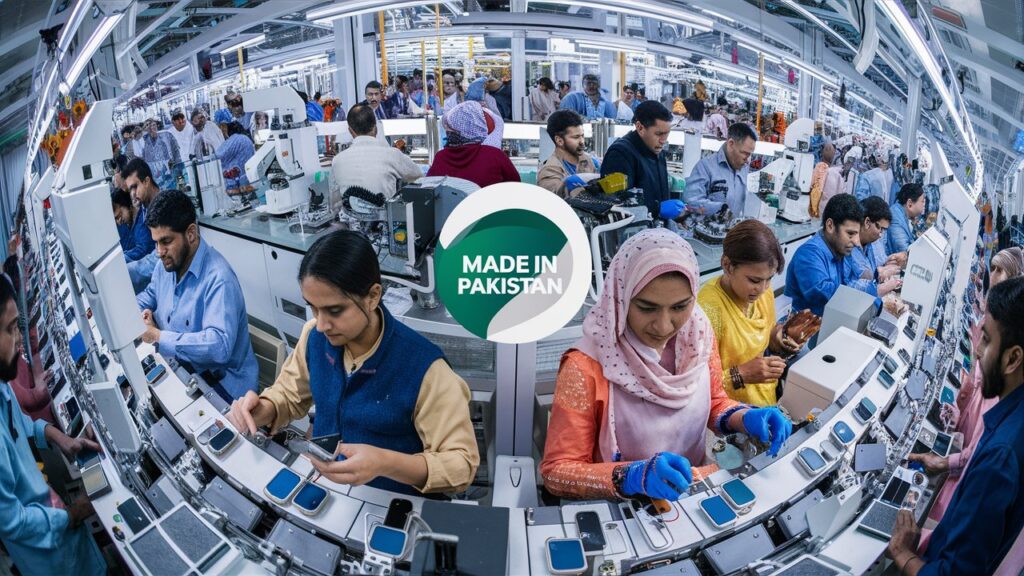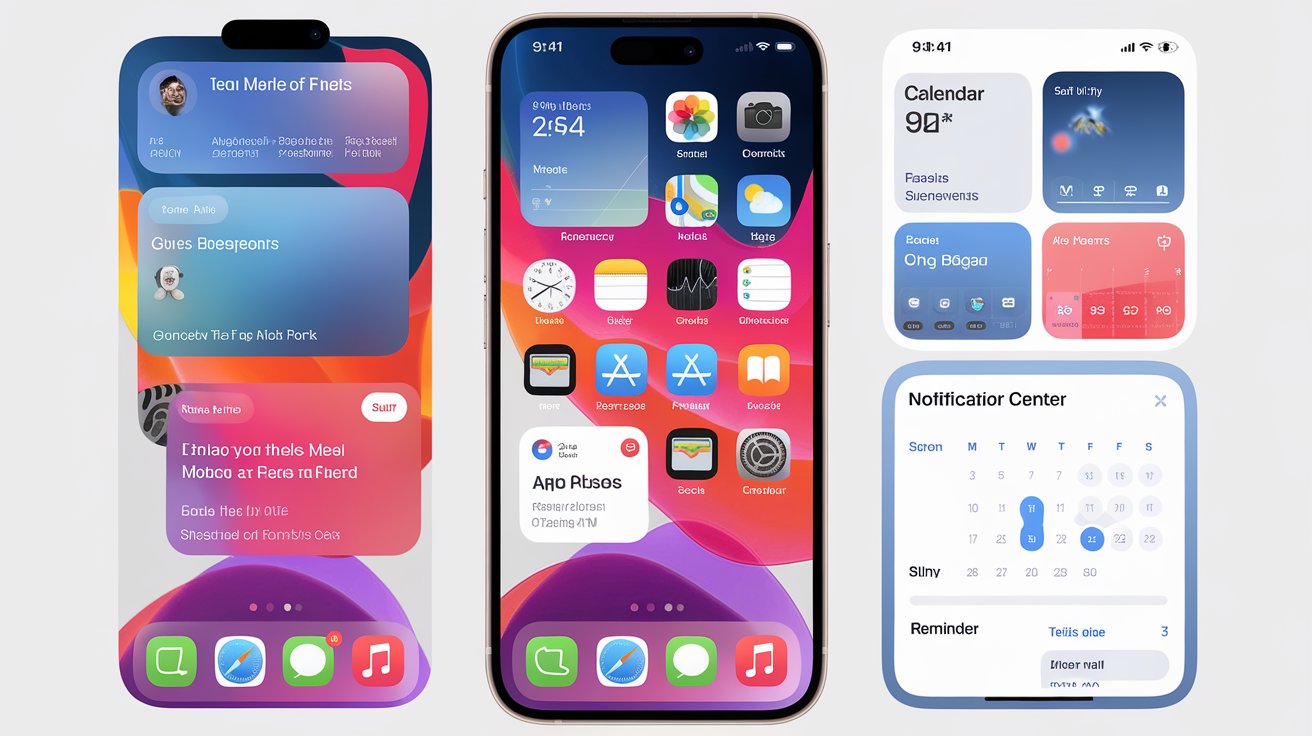The mobile phone industry in Pakistan has undergone a significant transformation over the past decade. After being heavily reliant on imported devices, Pakistan now fulfills 95% of its local demand through locally manufactured mobile phones. This shift has not only boosted the local economy but also positioned Pakistan as a growing hub for technological innovation in the region. This article explores the journey of mobile phone manufacturing in Pakistan, the benefits it brings, the challenges faced, and the prospects of this burgeoning industry.
Historical Context
Early Days of Mobile Phone Importation
In the early 2000s, Pakistan’s mobile phone market was dominated by imported devices. The high cost of these imports and the lack of local manufacturing capabilities meant that mobile phones were a luxury for many. The dependency on imports also led to a significant outflow of foreign exchange.
Shift Towards Local Manufacturing
The shift towards local manufacturing began in earnest in the late 2010s. The Pakistani government, recognizing the potential economic benefits, introduced policies to encourage local production. This included tax incentives, subsidies, and the establishment of special economic zones.
Government Policies and Support
Government support played a crucial role in the development of the local mobile phone manufacturing industry. Policies aimed at reducing import duties on raw materials, providing financial assistance for setting up manufacturing units, and creating a conducive business environment were instrumental in attracting both local and international investors.
Local Manufacturing Landscape
Major Manufacturers
Several major players have emerged in Pakistan’s mobile phone manufacturing industry. Companies like QMobile, Infinix, Tecno, and Vivo have established production facilities in the country, catering to the diverse needs of Pakistani consumers.
Production Capabilities
Pakistan’s mobile phone manufacturing industry boasts impressive production capabilities. State-of-the-art factories equipped with advanced machinery and technology ensure that locally produced phones meet international standards.
Employment Generation
The local mobile phone manufacturing industry has also been a significant source of employment. Thousands of jobs have been created, providing livelihoods for many and contributing to the reduction of unemployment rates in the country.
Impact on the Economy
The economic impact of local mobile phone manufacturing is substantial. It has led to increased economic activity, higher GDP contributions, and an improved balance of trade by reducing the import bill and increasing the potential for exports.
Technical Specifications
Types of Mobile Phones Produced
The local industry produces a wide range of mobile phones, from basic feature phones to advanced smartphones. These phones cater to different market segments, ensuring that there is a device for every budget.
Key Features and Innovations
Locally manufactured phones come equipped with a variety of features, including high-resolution cameras, large battery capacities, and advanced security options. Innovations such as AI integration and 5G compatibility are also being introduced.
Comparison with Imported Models
When compared to imported models, locally manufactured phones offer similar, if not better, features at more competitive prices. This affordability, coupled with the availability of after-sales service, makes them a popular choice among consumers.
Market Demand
Current Market Trends
The demand for mobile phones in Pakistan is on the rise, driven by increasing digital connectivity and smartphone penetration. The affordability of locally manufactured phones has further fueled this demand.
Consumer Preferences
Pakistani consumers prefer mobile phones that offer value for money, durability, and after-sales support. Locally produced phones meet these preferences, making them a favored choice in the market.
Market Segmentation
The market is segmented into various categories, including budget, mid-range, and high-end phones. Local manufacturers cater to all these segments, ensuring a wide array of options for consumers.
Benefits of Local Manufacturing

Cost Efficiency
One of the biggest advantages of local manufacturing is cost efficiency. Producing phones locally reduces costs associated with import duties, shipping, and logistics, making the end product more affordable for consumers.
Reduced Dependence on Imports
Local manufacturing reduces the country’s dependence on imported mobile phones, leading to a more self-reliant economy. This is particularly important in times of global trade disruptions.
Boost to the Local Economy
The local mobile phone manufacturing industry contributes significantly to the economy by creating jobs, fostering innovation, and generating revenue through taxes and exports.
Technological Advancements
Local production has also spurred technological advancements. Manufacturers are continuously innovating to meet consumer demands, leading to the development of advanced features and improved product quality.
Challenges and Limitations
Production Challenges
Despite the progress, local manufacturers face several production challenges, including supply chain disruptions, lack of advanced technology, and skilled labor shortages.
Quality Control Issues
Maintaining consistent quality is another challenge. Ensuring that locally produced phones meet international standards requires stringent quality control measures, which can be resource-intensive.
Competitive Market Dynamics
The mobile phone market is highly competitive, with international brands constantly introducing new models. Local manufacturers need to keep up with these trends to stay relevant.
Regulatory Hurdles
Navigating the regulatory landscape can be complex. Compliance with government regulations and obtaining necessary certifications can be time-consuming and costly.
Latest Innovations
Technological Advancements in Local Manufacturing
Local manufacturers are at the forefront of technological advancements. They are adopting new technologies and manufacturing processes to improve efficiency and product quality.
Introduction of 5G
The introduction of 5G technology in locally manufactured phones is a significant milestone. It positions Pakistan to take advantage of the next wave of mobile connectivity.
Smart Features and AI Integration
Smart features such as AI-powered cameras, facial recognition, and voice assistants are becoming standard in locally produced phones, offering consumers advanced functionalities at competitive prices.
Future Prospects
Predicted Market Growth
The future of the local mobile phone manufacturing industry looks promising. Market analysts predict sustained growth, driven by increasing demand and continued government support.
Potential for Export
There is significant potential for exporting locally manufactured phones to other countries. This could open up new revenue streams and further strengthen Pakistan’s position in the global mobile phone market.
Innovations in the Pipeline
Local manufacturers are continually working on innovations. Future developments may include more advanced AI features, improved battery technologies, and further enhancements in 5G capabilities.
Comparative Analysis
Comparison with International Brands
When compared to international brands, locally manufactured phones offer competitive features at lower prices. This cost advantage, combined with local availability and after-sales support, makes them a strong contender in the market.
Local vs. Imported: Cost and Quality
In terms of cost and quality, locally manufactured phones provide excellent value for money. They offer similar features and performance as imported models but at a more affordable price point.
Case Studies
Success Stories of Leading Manufacturers
Several local manufacturers have achieved significant success. Companies like QMobile and Infinix have become household names, known for their quality products and customer-centric approach.
Consumer Testimonials
Consumers who have opted for locally manufactured phones often praise their affordability, reliability, and the availability of after-sales service. These testimonials highlight the positive impact of local manufacturing on consumer satisfaction.
Expert Insights

Quotes from Industry Leaders
Industry leaders emphasize the importance of local manufacturing in driving economic growth and technological innovation. They highlight the role of government support and the need for continuous investment in R&D.
Analysis by Market Analysts
Market analysts provide insights into the trends shaping the local mobile phone industry. They predict continued growth and emphasize the potential for local manufacturers to become significant players in the global market.
Consumer Guide
How to Choose the Right Mobile Phone
Choosing the right mobile phone involves considering factors such as budget, desired features, and brand reputation. Consumers are advised to compare different models and read reviews before making a purchase.
Tips for Maintenance and Care
Proper maintenance and care can extend the lifespan of a mobile phone. Tips include using protective cases, avoiding overcharging, and regularly updating software.
Conclusion
Summary of Key Points
The local mobile phone manufacturing industry in Pakistan has come a long way, fulfilling 95% of the regional demand. It offers numerous benefits, including cost efficiency, reduced dependence on imports, and economic growth.
Final Thoughts on the Future of the Industry
The future looks bright for Pakistan’s mobile phone manufacturing industry. The industry is poised for sustained growth and success with continued innovation, government support, and a growing market.
Frequently Asked Questions (FAQs)
Which phone brands are made in Pakistan?
Several phone brands are manufactured in Pakistan. Some of the prominent ones include:
- QMobile
- Infinix
- Tecno
- Samsung
- Vivo
- OPPO
- Realme
- Itel
- Xiaomi
These brands have set up manufacturing plants in Pakistan, contributing significantly to the local market.
Is Tecno made in Pakistan?
Yes, Tecno phones are made in Pakistan. Tecno has established manufacturing facilities in the country to cater to the growing local demand and to benefit from the government’s supportive policies for local manufacturing.
Is Pakistan manufacturing mobile phones?
Yes, Pakistan is actively manufacturing mobile phones. The country has made substantial progress in the mobile phone manufacturing sector, with many international and local brands setting up production facilities. This shift is driven by favorable government policies, technological advancements, and increasing consumer demand for locally produced devices.
Is Samsung Made in Pakistan?
Yes, Samsung phones are made in Pakistan. Samsung has collaborated with local partners to set up manufacturing units in the country, aiming to provide high-quality devices to the Pakistani market and support the government’s initiative to promote local manufacturing.
Is Sparx a Pakistani brand?
Yes, Sparx is a Pakistani brand. It is a relatively new entrant in the mobile phone market and is known for producing affordable smartphones with good features tailored to the needs of the local population.
Which is Pakistan’s first mobile company?
Pakistan’s first mobile company is QMobile. Launched in 2009, QMobile quickly gained popularity for offering affordable and feature-rich smartphones, making mobile technology accessible to a larger segment of the Pakistani population.






